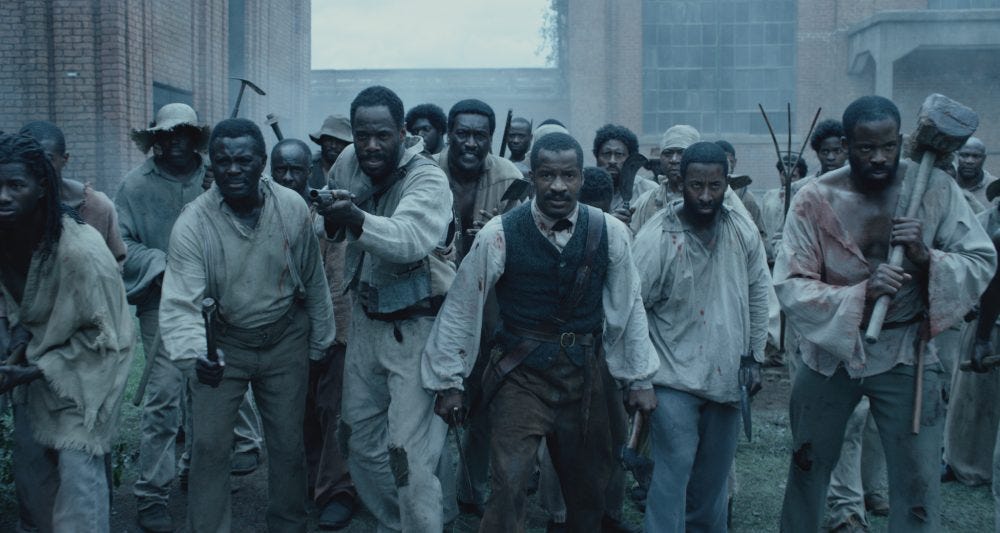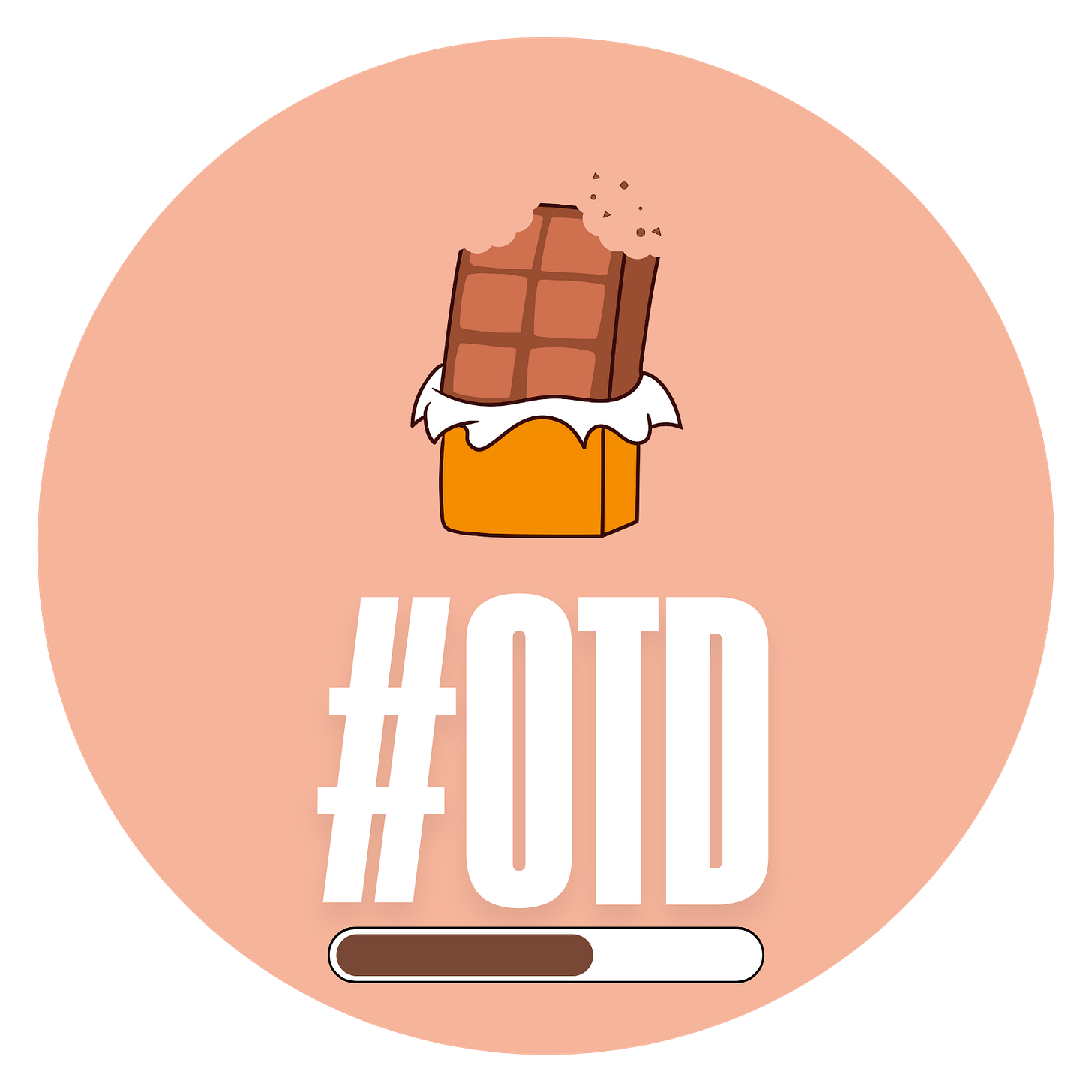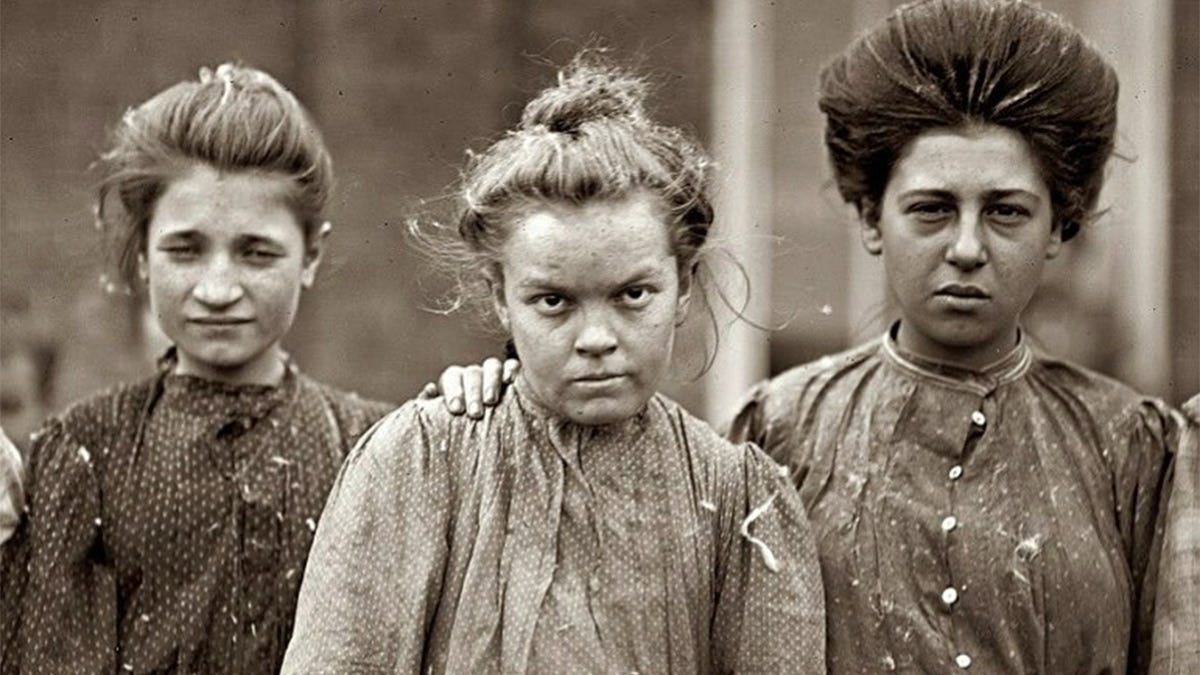The Truth About Nat Turner.
Child Labour, George Orwell, On This Day, & A New Island.
BOC#046
6 MINUTE MUNCH
TITLE PIECE: THE CONFESSIONS OF NAT TURNER
The 1831 Nat Turner rebellion is arguably one of the most infamous slave revolts in the history of human bondage. So significant is this sorrowful episode of history, that it was the subject of a 2016 drama, Birth of a Nation, as well as a 1967 Pulitzer Prize-winning novel by William Styron. More on this later.
The revolt itself was the by-product of the abhorrent institution of slavery which reduced men like Nat to the mere vestiges of worthless property. It was in this context that the frustrated slaves of Nat Turner’s band rose up in revolt, killing Joseph Turner, his family, and several other whites in the process. The slaves marched from farm to farm striking the off-guard slave owners of rural Southampton, Virginia, in August of 1831. Following the band’s vengeful killing spree, Nat was pursued by the authorities, and having spent the next six weeks on the run, was tried and hung on 11th November of the same year. Needless to say, the revolt resulted in hundreds of deaths across the board.
History has since repeatedly re-tried and re-sentenced Turner, painting him as both a revolutionary champion of African-American liberation on the one hand, and a murderous madman on the other; his name has thus sparked both controversy and conversation.
While much of what we know today is fragmented, disjointed and tarnished, one of the most captivating sources we have comes in the form of The Confessions of Nat Turner.
The day before he was hung, lawyer Thomas R. Gray, visited Turner’s jail cell where he penned a thirty-something page confession purported to be the very words of Turner himself. The trouble with The Confessions of Nat Turner, however, remains that the dictated words were likely influenced by the man whose hand conducted the pen. Historian Prof. Vincent Harding explains; “It is very clear…that we cannot take Nat Turner’s confessions at face value, but it also very clear that we cannot cast it aside.”
In The Confessions, Nat appears to speak openly, and somewhat proudly of the events that unfolded that sombre day. The book has Nat as having narrated explicit passages like:
I entered my master’s chamber, it being dark, I could not give a death blow, the hatchet glanced from his head, he sprang from the bed and called his wife, it was his last word, Will laid him dead, with a blow of his axe, and Mrs. Travis shared the same fate, as she lay in bed.
And…
I struck her several blows over the head, but not being able to kill her, as the sword was dull. Will turning around and discovering it, dispatched her also.
Each remorseless killing is articulated in cold blood. Either Nat was a proud of what he did, or the scribe was propagandising the narrative to meet some alternative agenda — both are likely. Many scholars believe the language used is unusual, and unlike that of a slave. As author Mary Kemp Davis exclaims, “I do not believe for a moment that Nat Turner talked that way.”
The motive behind Nat Turner’s revolt as depicted by Gray’s Confessions characterises Turner as a mentally unstable sociopath. In one such passage, he allegedly calls on prophetic visions, saying:
...and shortly afterwards, while laboring in the field, I discovered drops of blood on the corn as though it were dew from heaven—and I communicated it to many, both white and black, in the neighborhood—and I then found on the leaves in the woods hieroglyphic characters, and numbers, with the forms of men in different attitudes, portrayed in blood, and representing the figures I had seen before in the heavens. And now the Holy Ghost had revealed itself to me, and made plain the miracles it had shown me...
Outside of the purported Confessions of Nat Turner, there have been other retellings of the revolt including a 1935 theatre production by educator and playwright, Randolph Edmonds. But the most controversial retelling has been the fictionalisation of Turner in a book of the familiar title, The Confessions of Nat Turner by author William Styron.
It’s worth noting that although the novel was highly acclaimed, it received a lot of backlash from the black community. The controversy was born of the white author’s first person narrative in which he describes Turner as having engaged in a relationship with a young girl he would go on to kill. One of the contentious passages reads:
I was oblivious of her words. The place where her breast had met my arm was like an incandescence, tingling; again I was smothered by remorseless desire. Insanely, I found myself measuring the risk. Take her, a voice said. Take her here on this bank by this quiet brook. Spend upon her all afternoon a backed-up lifetime of passion. Without mercy take your pleasure upon her innocent round young body until she is half mad with fright and pain. Forget your great mission. Abandon all for these hours of terror and bliss … —The Confessions of Nat Turner by William Styron.
Styron’s defence was that his novel was mere fiction, and that he “had a right to make a relationship…a kind of centerpiece of the book.” He was after all writing a “novel…not a work of historiography.” That being said, Styron also held the opinion that Nat Turner was a “crazy lunatic.”
This fictionalised depiction of Turner as a conflicted and troubled individual is a stark contrast to the way he is portrayed in the 2016 movie, The Birth of a Nation. In the film played and directed by Nate Parker, Nat Turner is portrayed as an honourable, upstanding man of faith with a deep sense of justice.
Travelling from farmstead to farmstead preaching the Gospel, Turner witnesses the heartbreaking treatment of African-Americans at the hands of despicable white slave-owners. As a loyal husband and advocate of social justice, a defiant Turner leads a revolt in retaliation, something one might consider quite rational considering the circumstances. Some of the scenes in the movie capture the horrors of slave treatment, inviting the audience to empathise with Turner.
In this light, the events of 1831 might be thought of as a justifiably violent revolt against an equally cruel and violent institution.
The truth about Nat Turner, then, is that very little is actually known about the man beyond speculation and bias. His legacy, too, has mostly been constructed by those writing after the fact.
A rebellion like that of 1831 is best summarized by Mary Kemp Davis who says: “Slavery itself was such an abomination that I could see how it would drive men and women to do desperate things, and a slave revolt by its nature, to me, is a pretty desperate act.”
What are your thoughts?
ON THIS DAY: 17th NOVEMBER
The Suez Canal, the waterway connecting the Mediterranean Sea to the Red Sea, was officially opened on this day in 1869, reducing the 11,200 mile London-Bombay sea route to a significantly shorter 6,300 miles. Developed by French diplomat Ferdinand de Lesseps, canal construction began in April 1859 with a workforce of men and camels before being replaced by steam shovels.
England’s first queen, Mary Tudor, daughter of Henry VIII and Catherine of Aragon dies after five years on the throne in 1558.
Russian Empress Catherine the Great died of a stroke in this day in 1796. Her expansionist policies made Russia a force to be reckoned with in Europe. She was 67.
The unmanned Soviet Luna 17 spaceship landed on the moon on this day in 1970. It can still be seen at Mare Imbrium on NASA’s high resolution images of the moon.
BOOK PASSAGE OF THE WEEK
“The masses never revolt of their own accord, and they never revolt merely because they are oppressed. Indeed, so long as they are not permitted to have standards of comparison, they never even become aware that they are oppressed.”
― George Orwell, 1984.
PHOTO OF THE WEEK
This photograph capturing the expressions of Georgia cotton mill workers was taken by sociologist and photographer Lewis Hine in 1909. The children who worked mills, mines and factories and were often injured or killed. Lewis Hine was hired by the National Child Labour Committee to travel around taking pictures of exploited child workers. His photographs influenced legislation over a 35 year period.
DID YOU KNOW?
On 14th November 1963, Iceland got itself a whole new island thanks to ongoing volcanic activity around her shores. The new island of Surtsey disrupted air travel for days owing to an 8km high ash cloud. Volcanic eruptions didn’t officially end until 1967.
QUOTE OF THE WEEK
“Whatever happens, we have got the Maxim Gun, and they have not” — Hilaire Belloc The Modern Traveller (1898)
Read about the Maxim Guns invention here.
MISSED LAST WEEK? READ: FEMINISM Vs BIG BEER












